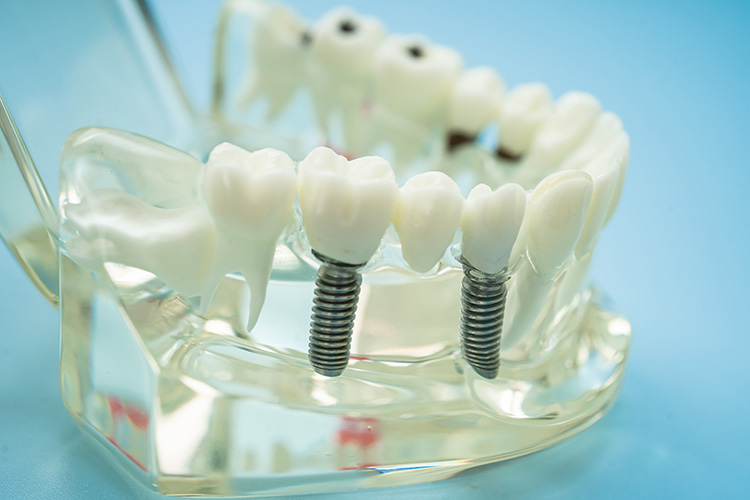
If you're considering tooth replacement options, you may have come across the 4 types of dental implants. Dental implants are a permanent solution for missing teeth, offering unmatched durability, functionality, and a natural appearance. Unlike traditional dentures or bridges, implants are surgically placed into the jawbone, providing a stable foundation that mimics a natural tooth root. However, not all dental implants are the same. Depending on your oral health, jawbone density, and specific dental needs, your dentist may recommend one of four different types of dental implants. Let’s explore these options so you can determine which one might be the best fit for your smile.
Now that you understand the 4 types of dental implants, you may be wondering which one is best for your specific needs. The right choice depends on factors like jawbone health, the number of missing teeth, lifestyle preferences, and budget. At Tedford Family Dentistry, we can help determine the best dental implant option for you through a comprehensive cosmetic dentistry consultation. We use advanced imaging technology to assess your bone structure and create a customized treatment plan tailored to your oral health needs. If you're ready to restore your smile with dental implants, we’re here to guide you through every step of the process. Schedule a consultation today to learn more about which implant option is right for you!
Call us today to book an appointment!
Call: (423) 238-8887
Book Online: https://tedfordfamilydentistry.com/ooltewah-tn-dentist-office
 We all want a more youthful appearance, especially as we approach middle-age and worry about getting passed over for jobs in favor of younger candidates or fear that we are losing our sex appeal. Millions of Americans fight to hide signs of the natural aging process with injections to tighten the skin and products to conceal gray hairs. One positive impact of cosmetic dentistry performed at our Ooltewah TN dental office is a more youthful appearance. For those with teeth in good condition, teeth whitening or dental veneers can give the illusion of a more youthful smile. For others who’ve lost teeth over the years, dental implants surgically positioned into the jawbone create a similar effect.
We all want a more youthful appearance, especially as we approach middle-age and worry about getting passed over for jobs in favor of younger candidates or fear that we are losing our sex appeal. Millions of Americans fight to hide signs of the natural aging process with injections to tighten the skin and products to conceal gray hairs. One positive impact of cosmetic dentistry performed at our Ooltewah TN dental office is a more youthful appearance. For those with teeth in good condition, teeth whitening or dental veneers can give the illusion of a more youthful smile. For others who’ve lost teeth over the years, dental implants surgically positioned into the jawbone create a similar effect.
Think back to when you were a younger person, perhaps in your twenties, with beautiful white teeth freshly aligned from wearing braces in your teens. Wouldn’t it be great to have those pearly whites again? Like the circles inside a tree marking the passage of time, the shade of the enamel on our teeth can reveal our age, even for those who’ve taken great care of their teeth, brushing and flossing daily and scheduling regular cleanings twice a year as recommended. It’s simply inevitable for teeth to stain as a result of aging, combined with tobacco use, years of drinking colas or coffees, eating acidic foods, or possibly as a result of some trauma experienced along the way. Teeth whitening at our Ooltewah cosmetic dentistry office lightens teeth and helps to decrease this discoloration. Another alternative is applying thin pieces of porcelain veneers to add strength and mask natural teeth that are chipped, stained, or worn-down over time.
Whitening is the cheapest and easiest way to make a smile look younger, says Bruce Seidner, a fellow at the Academy of General Dentistry. “However, not everyone can have their teeth successfully whitened. Sometimes a person's enamel or damage to the teeth make it difficult to achieve lasting results. In those cases, a veneer covering the tooth may be a better option,” Seidner told US News & World Report.
When simple teeth whitening and veneers fail to improve the look of teeth, dental implants become the next option if someone wants to avoid dentures, which can slip and not feel as natural. It’s important for surgically implanted teeth to match the tone of the surrounding teeth, if any, in order to appear natural. Missing teeth can cause a more “sunken-in” appearance and add wrinkles to the face. The effects of gum disease building over generations can impact the look of our smile as well and may require grafting to restore receded gums. It’s comforting to know that age doesn’t disqualify us from having a better smile.
No two people age in exactly the same way. Regardless of the condition of the mouth, we can always look better with some effort. With cosmetic dental procedures performed in Tedford Family Dentistry’s Ooltewah TN office, you can enjoy and embrace your age with a more confident, youthful smile that helps you compete for that job or win the attention of that special someone.
Dr. Keith Tedford can consult with patients who want to improve the appearance of their teeth and achieve a more youthful look. To meet with him and our staff, call us at (423) 238-8887 or stop by our office at 9380 Bradmore Lane, Suite 108, in Ooltewah TN to schedule an appointment with Dr. Tedford.
Photo: © GStockStudio / 123RF Stock Photo
Blog © 2018 Tedford Family Dentistry: Tedford Keith DDS | Ooltewah TN 37363